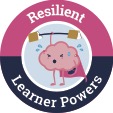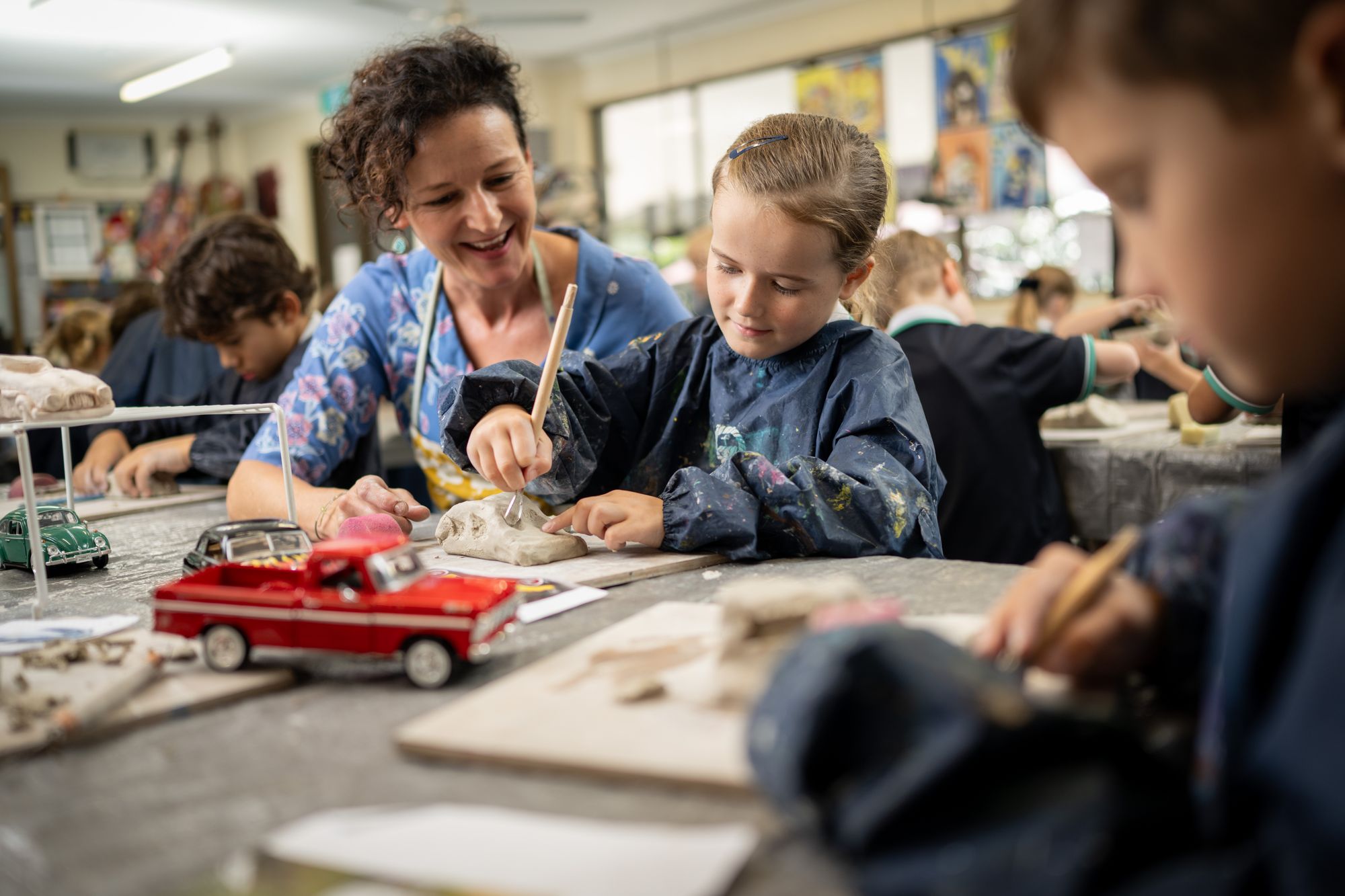Unpacking our Flinders Learner Powers - A Five-Part Series
Article #4: The ‘Resilience’ Learner Power
By Ms Kersti Mowat, Head of Junior Primary, Flinders Primary School
Resilience is a skill that enables us to navigate life successfully, adapting to changes and stressful situations in healthy and constructive ways. Would you describe yourself as a ‘resilient’ person?
Resilience is not an innate trait, but rather can be cultivated from a young age and then must continue to be nurtured and strengthened throughout life. It’s a handy tool to have in our skill-set, because with resilience we are more likely to navigate the ups and downs of life with confidence and competence.
For children, developing emotional and psychological resilience is important, as the process improves the likelihood they will thrive as adults. In our Flinders Primary School, ‘resilience’ is one of the five Learner Powers we encourage. Our students from Prep to Year 6 know that resilience looks like being brave, persistent and positive in their approach to learning, building friendships and trying new hobbies.
‘Frustration tolerance’ is a term our staff are also familiar with, as it is crucial for learning and building resilience. At Flinders, students have many opportunities to enter ‘the zone of frustration’. From learning Phonics to flying drones, participating in our Swimming Carnival and learning a string instrument in Music, children must learn numerous tasks that can initially be frustrating. In a school environment, teachers scaffold and guide the development of resilience to enhance a student's frustration tolerance and nurture their love of learning.
As we know, building resilience is also a vital ingredient in our parenting role. Expert Australian parenting mentor Maggie Dent notes, “The process of building resilience directs our interactions with our children as we strengthen their ability to meet life’s challenges and pressures with confidence and perseverance.”
Beyond Blue uses the analogy of a “plane in a storm” to describe resilience, in that the child is the pilot and their family, friends, teachers and health professionals are the co-pilots. While you may not be able to control the weather (life’s adversities), nor the type of plane (biological characteristics), the pilot can be well-trained and the co-pilots can help to navigate turbulence and safely land at their destination.
At Flinders, we provide a supportive and structured environment for our students to face and overcome challenges. Through a combination of academic rigour, co-curricular activities and social interactions, we teach children problem-solving skills, adaptability and perseverance. By fostering a sense of community and encouraging positive self-talk, our Primary teachers empower children to bounce back from setbacks and thrive.

Key Takeaways for Parents
As a parent, if you’re keen to learn how to empower your child to be more resilient, here are some tried and trusted strategies and approaches to consider.
- Try not to rush to ‘fix’ things for your child right away:
Allow your child to face challenges and solve problems independently, whether they’re learning to tie their shoelaces, organise their homework schedule or pack their sports bag. With each successful moment, they’ll begin to learn that persistence pays off! - Teach your child simple strategies for overcoming obstacles:
Problem-solving strategies are helpful for building resilience as they enable a child to identify a problem and break it down into smaller, manageable tasks to achieve success. For example, if your child has an important music performance ahead, why not support them in creating their own plan for success. Perhaps they will choose to practise daily, attend every rehearsal and ask their tutor for feedback in the lead-up, so they feel prepared for the big day! - Encourage positive language and mindset in your home environment:
Be a healthy role model by using positive self-talk and demonstrating a growth mindset. Help your child to replace defeatist language, such as “I can’t do this!”, with “I will have a go,” and “I can do hard things!” - Model a deep love of learning:
Show enthusiasm for new experiences, try new hobbies and demonstrate reading and learning as a natural part of your life at home. Notice your child’s efforts and progress, big and small. Celebrate progress - not perfection!
Read about our other Learner Powers
NOTE: This article is part of a five-article series to explore the five learning dispositions of the Flinders Primary School's signature Learner Powers program. To follow the series, visit the articles below.
Article #1: Reflective Learner Power click here
Article #2: Innovative Learner Power click here.
Article #3: Collaborative Learner Power click here.

